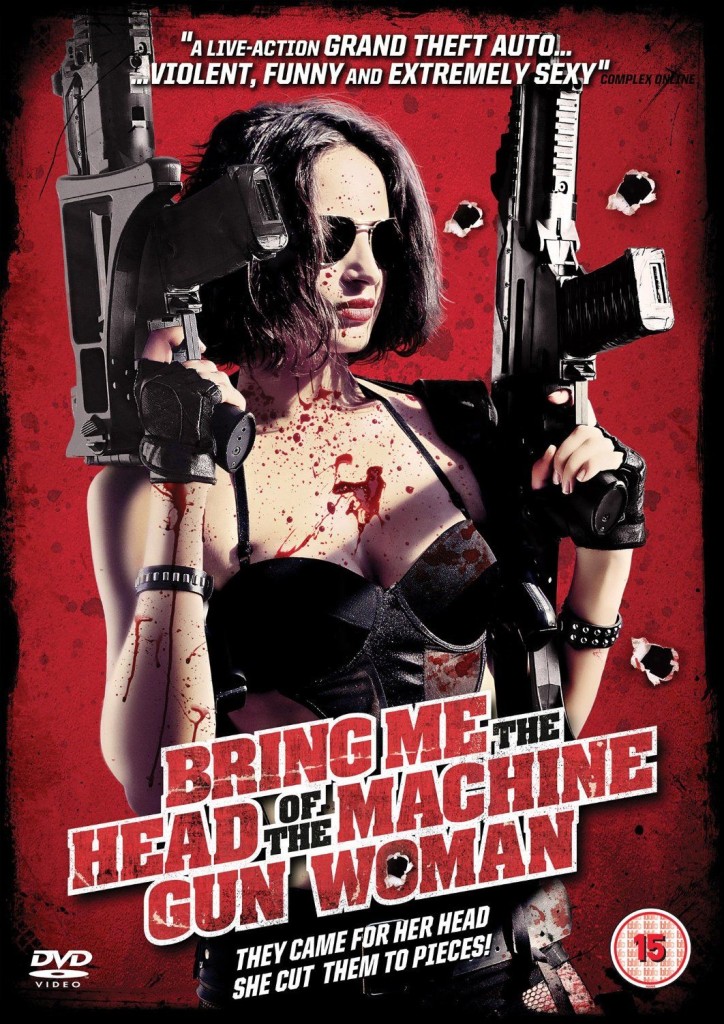★★★½
“Parental advisory, to put it mildly.”
 This is not an easy film to watch. The easily-offended should stay away. Indeed, even the hard to offend, which include myself, may find it rough going. To give you some idea, the opening scene is set in a 1978 Chilean torture chamber where a political dissident is being interrogated. When she won’t talk, her son is drugged and forced to rape his own mother. It actually goes on to get worse still, but that’ll give you some idea. In terms of disturbing opening scenes, I can’t think of many equivalents.
This is not an easy film to watch. The easily-offended should stay away. Indeed, even the hard to offend, which include myself, may find it rough going. To give you some idea, the opening scene is set in a 1978 Chilean torture chamber where a political dissident is being interrogated. When she won’t talk, her son is drugged and forced to rape his own mother. It actually goes on to get worse still, but that’ll give you some idea. In terms of disturbing opening scenes, I can’t think of many equivalents.
Fast forward to 2011, and four young women are on their way for a quiet weekend in a country house owned by one’s uncle. An unfortunate stop for directions in a local dive-bar puts them on the radar of Juan (Antivilo) and his son, Mario (Ríos). The former was the teenage boy of the opening sequence, and was clearly broken beyond repair by those and other events. He has passed that damage on to Mario, and the pair now form a father-son duo of staggering repugnance. When they subsequently show up on the doorstep, our four heroines are in for a very, very unpleasant night. But when they learn Juan has turned his attentions to pre-pubescent local girl, Yoya, they decide something must be done, and take the fight to Juan and Mario.
It’s brutally unpleasant stuff, with some (literally) mind-blowingly gory effects. But it’s acted and assembled well enough that it can’t be written off as mere torture porn, and some radical switches in tone actually work in its favour. For example, after the opening scene, we cut to some intense lesbian canoodling, provoking cinematic cognitive dissonance which is disturbing yet effective. And importantly, it’s not without a point. In that area, it’s like A Serbian Film, which used its cinematic atrocities as a parable about the break-up of Yugoslavia. I’d actually say this was rather more successful in terms of getting its message over, about the impact of the tyrannical Allende regime of the seventies and its impact over the decades.
The carnage likely reaches its peak near the middle when everyone returns to the bar, for a fight of disturbing savagery, even by this movie’s standards, which also affirms Juan’s status as completely above the law in the local community. The final battle, I have to say, did come across as rather confused in comparison, likely hindered by lighting which barely reached the level of murky. As a result, on more than one occasion, I went “Hang on, aren’t they dead already?”Considering how coolly clinical Rojas’s camera was in capturing the previous unpleasantness, this was disappointing.
If there’s a message here, it’s the one written by Edward Burke: “The only thing necessary for the triumph of evil is for good men to do nothing.” Or women, in this case, with Andrea (Martin) taking the lead. She’s an interesting character, with a certain standard of morality: for instance, she doesn’t like her sister’s girlfriend, though it’s unclear whether this is because of gender or personality. It’s Andrea who increasingly occupies centre-stage as events unfold, and occupies the film’s final frame. Though let’s just say, it’s not exactly what you would call a happy ending, even if there is some degree of catharsis to be found. It’s probably even harder to forget than to watch.
Dir: Lucio A. Rojas.
Star: Catalina Martin, Daniel Antivilo, Macarena Carrere, Felipe Ríos





 Business is on the streets, check it out.
Business is on the streets, check it out.










